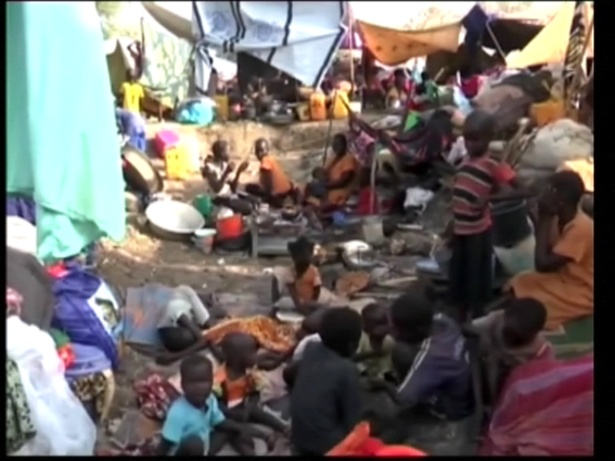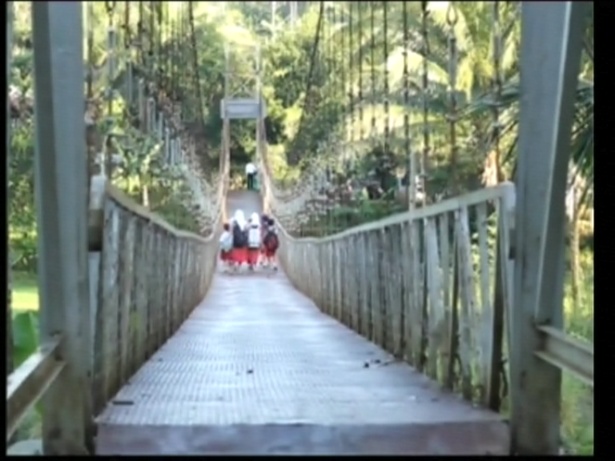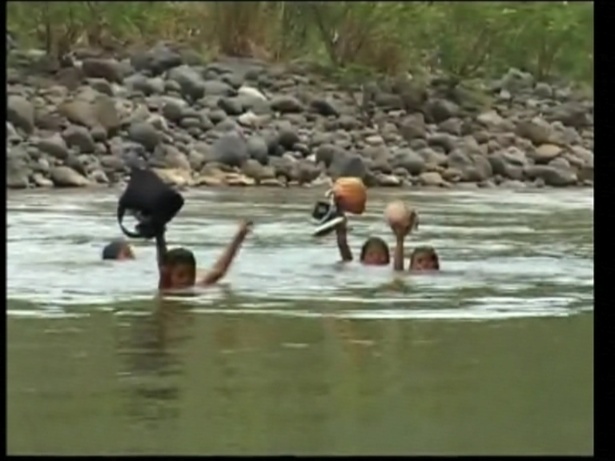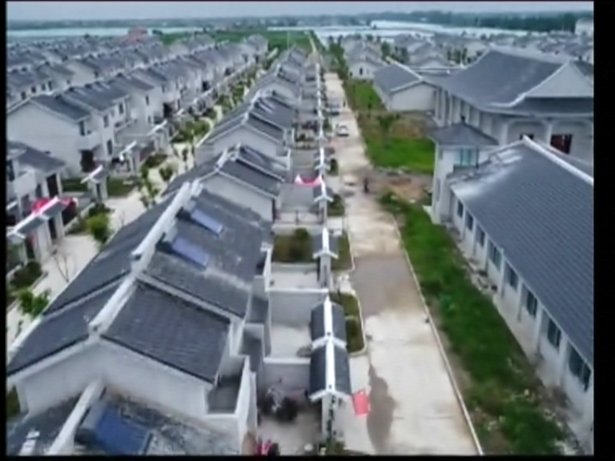Master's Dharma Talk: Making a Big Difference through Small Contributions

It’s sad to see disasters happening all over the world every day. We cannot be happy as there is a heaviness in our hearts, because the Earth is already damaged, some places are experiencing food shortages, and natural and manmade disasters are occurring frequently. Think about it, with our Earth in such a critical condition, humans’ situation cannot be better off.
How can we, who are safe and sound, not vow to help others? How can we not repent? How can we not act with our power of love? How can we bear to see so many people in suffering? So, we should really reflect on ourselves. We have many indulgences in life.
In my morning Dharma talk, I also mentioned that not only the wealthy can help others. We see a Buddhist monk in Myanmar. He saw Tzu Chi’s coin bank program that inspires people without money to save a handful of rice to donate. He was inspired by how the rice, when collected, can be used to help people. He then implemented it in his village; he encouraged his followers and students of his school to participate.
As he promoted this practice, it became more widespread. With more people participating, there would be more power of love and more people being helped. The act of love is not about how (big or small) it is, but that it is given regularly. For those who are wealthy and willing to give, they create boundless merits and become the richest of the rich.

Those who are poor but willing to give, they become the richest of the poor. Though they are materially poor, they are spiritually wealthy. By giving of themselves, they find peace and happiness. They feel they have the ability to help others, and have the confidence to keep helping others.
We also see our volunteers in Taiwan packing bowls, spoons, and blankets for the relief aid in Sierra Leone. They need to be shipped by air soon. We are sending them the most needed right now, and then send the rest of the relief goods by sea. There are also entrepreneurs in Sierra Leone. Once the goods arrive there, we can turn our love into action.
Volunteers from the U.S. have gone there and are in charge of this relief mission. We hope that our relief effort will inspire the locals to join. Once the locals start the relief work, it is like a lamp being lit which lights up everything around it. Everyone has a lamp in their heart. After they’re inspired by Tzu Chi, the lamp is lit. We hope that the darkness in Sierra Leone can be dispelled by light as people in Sierra Leone have suffered a lot. All in all, helping them requires a lot of people and effort.
We also see that this year marks the tenth year of our DAAI TV in Indonesia. Ten years ago, staff from Taiwan went to Indonesia to help setup DAAI TV there, which was not easy. DAAI TV has done a wonderful job of spreading wholesome teachings in Indonesia. The Tzu Chi volunteers there have done a lot with their power of love.

Take the example of a bridge that was built with the help of Tzu Chi. In the past, students would have to cross a river by foot to go to school. cross a river by foot to go to school. They had to do that every day.
“When it rained, they couldn’t go to school because the water level was too high, and it’s hard to cross the river,” a teacher said.
“When I can’t go to school because of the river, I get very sad,” a student said.
At such a key junction for people’s commute, a bridge was lacking. Tzu Chi volunteers saw this need and built a bridge there. They named it the Da Ai Bridge. Now children of the village can go to school safely and people from surrounding villages would also use this bridge to cross the river.
Before, all the villagers had to wade across the river. Now, even people from other villages use this bridge.
“The bridge we help build in Bandung is the result of our Culture Mission carrying out its work. Because our reporter was there and filmed the children crossing the river, we were able to see that the children there have to cross a river every day to go to school. They had to carry their clothes and book bags on their heads. After our reporters came back, they reported this case to Tzu Chi. Tzu Chi then cooperated with the local government and the military to build the bridge,” said Liu Su-mei, Chairman of Tzu Chi Indonesia.

“The kids have a strong desire to learn, even though the environmental conditions at the time didn’t permit that. I never imagined that the Tzu Chi Foundation would come and help build the bridge. We are thankful. It made going to school easier for the students. Students attend schools from kindergarten all the way to high school. Now, some students are attending university,” said a teacher there.
A girl was born right after the bridge was completed.
“The bridge has truly improved the lives of the locals. That was why there was a child in the village whose name means Great Love.
She was born in that village, so her father gave her a name that means Great Love. This is a wonderful affinity,” said a teacher.
Recently, staff revisited the village and filmed her walking on
the bridge on her way to school. She’s already in school. See, such is love. Through
people’s contributions, we’re able to build bridges, roads, permanent housing (for those in need). Take
the example of a village in Jiangsu, China. The village was struck by a
tornado. Tzu Chi helped rebuild the village so the residents can live in the
same village again.
We also build a school and an ancestral shrine for them. The villagers should be able to move in to their new houses this year. Another example is the Heliu Village of Taoyuan in Taiwan.
In addition to rebuilding houses for the mudslide affectees, we also provided them household items. A lot of love was put into
this. Volunteers give of themselves with love that is equal to all.
Now that they have a permanent place to live, we hope that they can raise their family without worries and live there for generations. All these are the results of people giving of themselves every day and the accumulation of their contributions and love. We should not underestimate tiny bits of contribution, because they add up and make a big difference.








 Sitemap
Sitemap